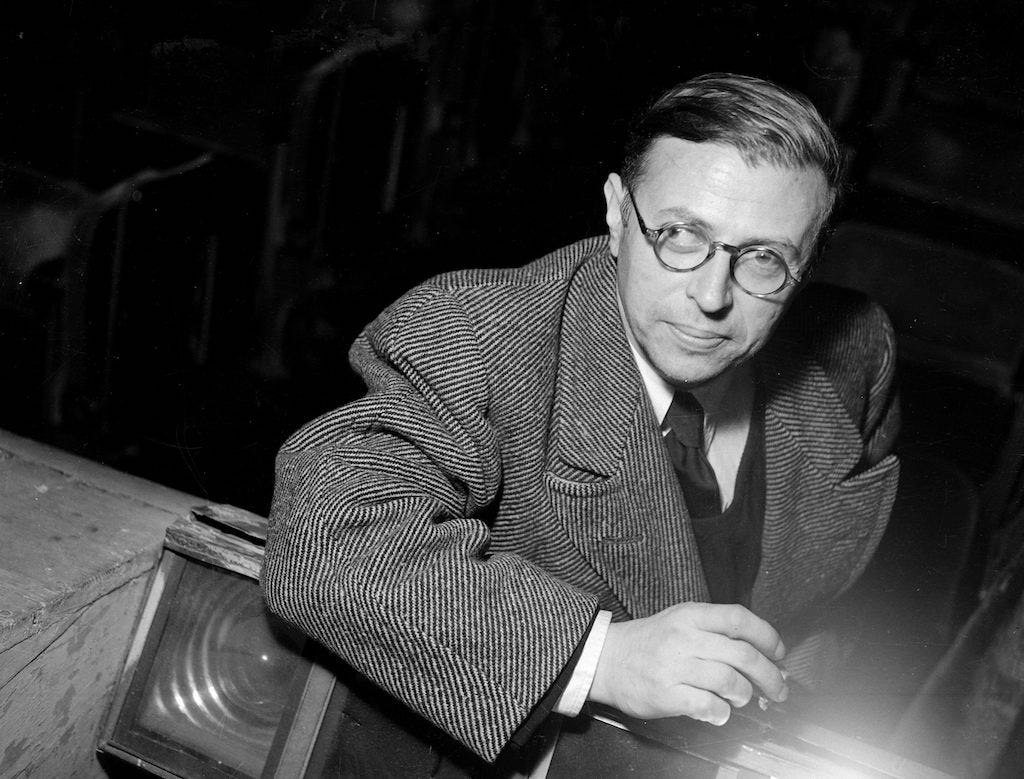Sartre Meets Mindfulness: How Existentialism Can Help in a Distracted World
The Existentialist Call to Action
Have you ever felt like you're just playing a role in your own life? Jean-Paul Sartre, the prominent figure of 20th-century existentialism, would argue that you're right to question it. His philosophy, at its core, demands that we acknowledge our radical freedom: that we are condemned to be free. This isn't a joyous proclamation, but a weighty responsibility. We are born into a world without inherent meaning, and we are tasked with creating our own values and essence through our choices and actions. Sartre believed that authenticity – living in accordance with our freely chosen values – is the key to a meaningful life. It requires us to take full responsibility for our existence, moment by moment.
The Mindfulness Connection: Present Moment Awareness
Mindfulness, a practice rooted in Buddhist traditions, shares a surprisingly close kinship with Sartre's existentialism. Mindfulness is the practice of paying attention to the present moment without judgment. It involves cultivating an awareness of our thoughts, feelings, and bodily sensations as they arise, rather than getting swept away by them. This focus on the "now" directly counters the forces that often prevent us from living authentically.
Distraction: The Enemy of Authenticity
In our modern, hyper-connected world, distraction is a constant threat. Social media, endless notifications, and the pressure to constantly be "productive" pull us away from the present moment and into a world of manufactured anxieties and fleeting pleasures. This is where the intersection of Sartre and mindfulness becomes crucial. Sartre would argue that these distractions are often a form of "bad faith" – a denial of our freedom and responsibility. We use them to avoid confronting the anxieties of existence and the burden of choice. We allow others, or the world, to define us instead of defining ourselves.
Mindful Authenticity: A Path to Meaning
The synthesis of Sartre and mindfulness – which we might term "Mindful Authenticity" – offers a powerful antidote to this pervasive distraction. By practicing mindfulness, we cultivate the ability to observe our thoughts and feelings without identifying with them. We learn to recognize the internal narratives and societal pressures that pull us away from our authentic selves. This newfound awareness is the first step in reclaiming our freedom. As Sartre put it:
"Man is condemned to be free; because once thrown into the world, he is responsible for everything he does."
This responsibility becomes manageable with the help of mindfulness practices. We can cultivate greater awareness and a more direct, conscious experience of life.
How to Practice Mindful Authenticity
Integrating Sartre's existentialism with mindfulness can be surprisingly simple. Start by incorporating mindfulness practices into your daily routine, such as meditation, mindful walking, or simply paying attention to your breath. Then, reflect on your values. What truly matters to you? What kind of person do you want to be? Make choices that align with those values, even in the face of external pressures. A great introductory video on this topic, touching on key elements, is available here:
. Remember, it's a continuous process, a constant struggle to remain present, aware, and true to yourself.
The Benefits of a Mindful, Authentic Life
The rewards of embracing Mindful Authenticity are immense. By taking ownership of your freedom and living in the present moment, you can experience a greater sense of purpose, reduce anxiety and stress, and build more meaningful relationships. You'll begin to shed the expectations of others and embrace your unique individuality. You will be, as Sartre hoped, truly present in your own life.
Conclusion
In a world saturated with distractions, the philosophical alliance of Sartre and mindfulness provides a practical roadmap to a more conscious and fulfilling existence. By embracing our freedom, facing the present moment, and living authentically, we can navigate the complexities of modern life and create a life worth living, one choice and one breath at a time.




I think mindfulness isn't to get rid of distractions. I think it's to avoid thinking about the past and the future, and to enjoy doing simple things. The ancient samurais did that through the tea ritual or painting.
If you want to get rid of distractions, you have to be a lot more extreme and radical, such as deleting your facebook account and social media, which is all comprised by the rabble. Until then, you'll always be a slave of these artificial, totally useless, and negative influence in your life.
In other words, you have to do what every true thinker has done, whether they were samurais, Zen Buddhist monks or Western philosophers: be with yourself, not with others, and especially not with artificial others